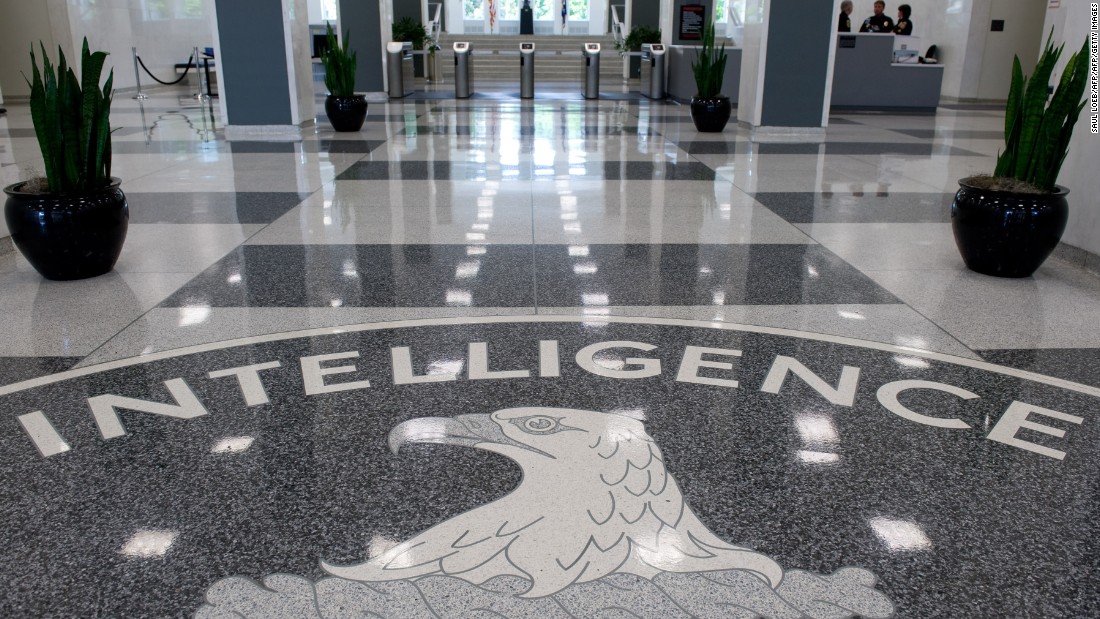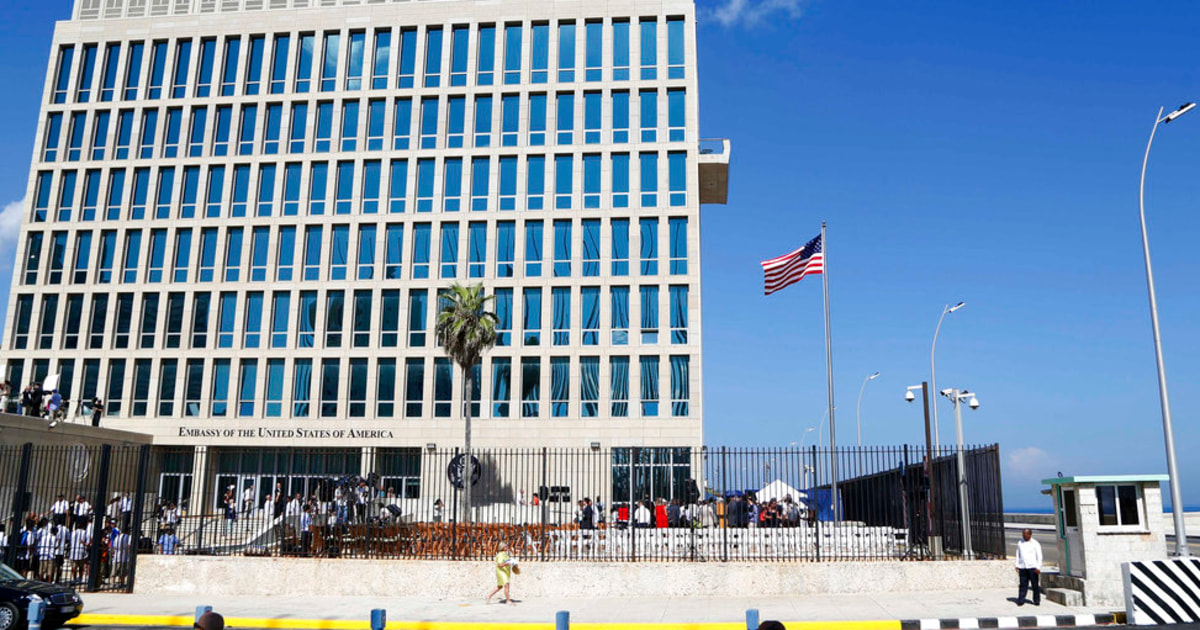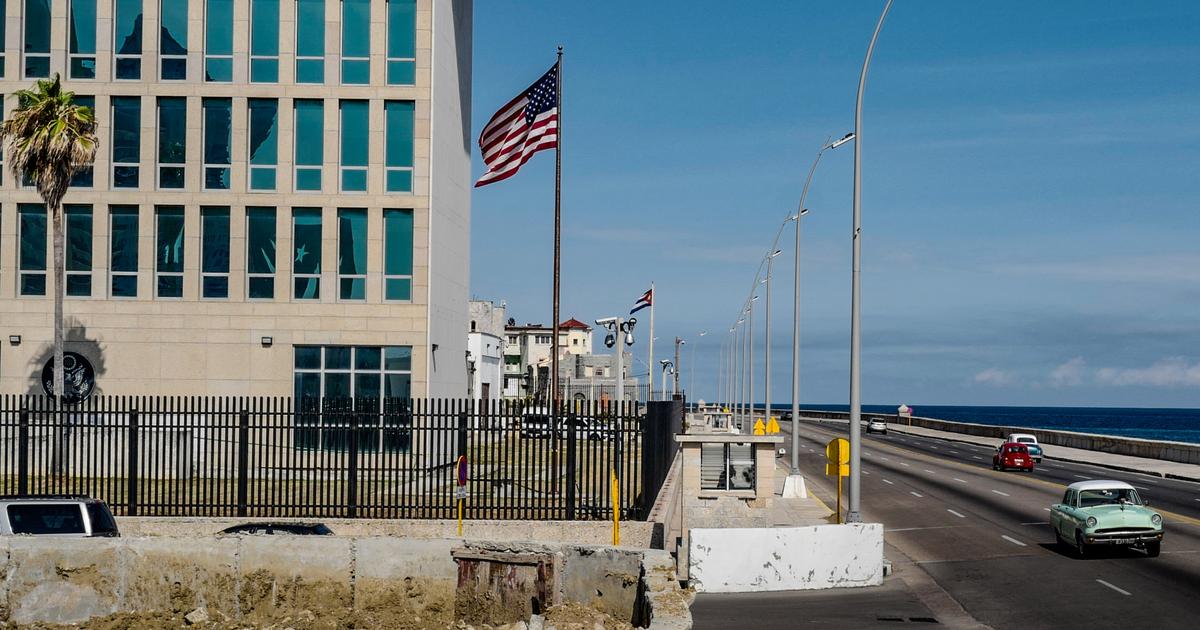They investigate possible cases of Havana syndrome in Austria 2:24
(CNN) -
The CIA inspector general is conducting a review of the agency's handling of the case of officials sick with the mysterious "Havana Syndrome," CNN learned.
The revelation comes just as cases multiply around the world.
Multiple sources familiar with intelligence described a large number of reports in recent months.
Dozens of victims have been reported in Vienna, a notorious hotspot for spies.
Cases have also been reported in Africa this year, according to two people familiar with intelligence.
The intelligence community still has no official explanation for the puzzling constellation of sensory experiences and physical symptoms that have sickened hundreds of US diplomats, spies and troops around the world.
Some reached a state serious enough to force their retirement.
About 100 of those cases involve CIA personnel.
A hypothesis about the Havana Syndrome
One working hypothesis is that Russia uses a microwave or other directed energy device.
But that theory doesn't fit perfectly in all cases.
In any case, when it comes to Russia, Moscow's intention remains elusive.
advertising
Hardest hit by mysterious attacks on the White House 1:14
Still, victims, lawmakers, and some State Department and intelligence officials are growing increasingly frustrated.
This is because, six years after the first cases were reported in Havana, Cuba, the intelligence community has not been able to find the culprit.
It could not even be determined whether the episodes can definitely be termed "seizures."
Claims of the victims
Some victims and former intelligence officials also report that skepticism from some senior career officials (particularly under former CIA Director Gina Haspel) has made it difficult for victims to receive adequate care.
The US investigates a possible mysterious attack near the White House similar to those that occurred against its personnel in Cuba and other countries
"In a bipartisan fashion, the House Intelligence Committee has been speaking with people who know firsthand how these health incidents are being handled and how they have been handled in the past," said a commission official.
"From that work, we are very concerned about how some people were not able to access necessary benefits and medical care."
Hardest hit by mysterious attacks on the White House 1:14
Sen. Jeanne Shaheen, a New Hampshire Democrat on the Senate Armed Services Committee, was even more incisive in a statement Thursday.
"It is shameful that American public servants and their loved ones affected by these targeted energy attacks have endured so much difficulty in accessing the care they need, and that the cause is still unclear."
Leadership review
The inspector general's review, which has not yet risen to the level of a formal investigation, specifically looks at how sick officers are cared for.
At the same time, CIA Director William Burns is reviewing the leadership team responsible for the matter and strengthening the medical care available to victims.
Sonic attacks in Washington?
1:09
The former head of the task force responsible for finding the cause of these incidents, Cynthia Rapp, retired less than a year after taking office.
It's the second key exit since Burns took over the agency.
The medical director, seen by some former officials as overly skeptical about the mysterious ailments, announced his retirement and was replaced earlier this year.
A briefing that Rapp gave to the Senate Intelligence Committee earlier this year came under particular scrutiny.
There, the senators were frustrated that he did not provide satisfactory answers to their questions about the incidents and how the CIA has handled them.
CNN was unable to reach Rapp to discuss this issue.
USA: We do not know who made sonic attacks in Cuba 1:29
A CIA official said Rapp's departure was not related to his job performance.
"[Rapp] delayed his retirement for a few months due to dedication to the agency and its people," said this person.
"It was always a question of when she was going to transition in the summer. She took what wasn't a well-structured effort and turned it into a strong organization."
The replacement
Rapp's replacement, who is undercover, is a counter-terrorism veteran who was closely involved in the operation to find and liquidate Osama bin Laden.
Burns has also "tripled the number of full-time medical personnel at the CIA who focus on these issues," he said in an interview with NPR on Thursday.
"We have reduced the amount of time it used to take to wait to get into Walter Reed for our agents from more than eight weeks to less than two weeks," he said.
"We are very focused on that."
Burns has received praise from some former victims for his handling of the problem since he replaced Haspel, who, according to some victims, was slow to respond to what they see as a national security and personal health crisis.
"[Burns] has demonstrated a personal commitment to providing medical care to injured officers and will also allocate adequate resources and personnel to find out who is behind these attacks," said Marc Polymeropoulos, a former high-ranking CIA official who is withdrew amid debilitating symptoms.
His symptoms began in Moscow in 2017, where he helped run the agency's clandestine operations in Russia.
"This is a very welcome change from the previous leadership team, which sometimes ignored the victims and treated this issue as a nuisance vice, a real challenge to national security," he added.
A syndrome with many symptoms
The challenge for government officials who follow these reports is that there is no sure way to diagnose cases like Havana Syndrome, which the government calls "abnormal health incidents."
Victims suffer from a host of different symptoms both initially and over time, and scientists, engineers, and medical experts have divided opinions on whether all the investigated cases can be attributed to a single cause.
President of Cuba denies sonic attacks on US diplomats
Some victims reported experiencing sudden vertigo, headaches and pressure in the head, sometimes accompanied by a "piercing directional noise".
And some reported that they can escape symptoms simply by moving to another room, and recoil upon returning to their original position.
US officials in China and the UK have fallen ill after previously reported episodes.
The strange episodes have also affected the families of American officials abroad.
A military agent was trapped at an intersection in Tajikistan when he began experiencing symptoms.
Her baby started crying and stopped as soon as the vehicle left the intersection.
New clues about acoustic attacks in Havana 0:47
There were also a number of episodes under investigation as possible cases in the United States, CNN previously reported, including two members of then-President Donald Trump's National Security Council staff who were attacked near the entry points to the White House.
From Russia with love?
Russia is one of the few countries that has devoted research and development to what some experts believe could be the type of weapon that could cause symptoms consistent with Havana syndrome.
But intelligence pointing to Russia as a possible culprit is circumstantial, according to multiple sources familiar with the matter.
This makes it difficult for analysts to assess with certainty whether Moscow is behind the episodes.
🔊 Listen to the audio of the acoustic attacks in Cuba 1:31
"It could be, but ... I don't want to suggest anything until we can draw some more definitive conclusions as to who it could be," Burns told NPR.
"There are a number of possibilities."
In Africa, for example, Russia is seen as a possible suspect because Moscow, particularly the quasi-official Russian mercenaries known as the Wagner Group, is known to have a presence across the continent.
Microwave energy
But even the technology that could cause such an inconsistent set of symptoms is a matter of public debate.
A March report from the National Academy of Sciences found that "directed pulsed radio frequency energy" was the most likely cause of the strange set of symptoms.
This is the so-called microwave energy.
But some officials caution that even that is not certain, and some scholars have publicly dismissed the theory as baseless.
Doubts about the intent of the attacks
Then there is the question of intention.
Some officials tracking Havana Syndrome suggest that if a foreign adversary is using some type of directed energy weapon, its purpose may not be to harass or maim American personnel, but to collect information from their cell phones.
Acoustic attacks continue to cool US-Cuba relations
At least some former officials and lawmakers tracking the problem now believe that State Department and Department of Defense personnel who have fallen ill around the world may have been collateral damage.
They see the main target as intelligence agents, another salvo shot in the decades-long reckoning in the world of spies between Russia and the US.
But for now, while agents continue to be affected around the world, the truth remains unknown.
Kylie Atwood contributed to this report.
Cuba









